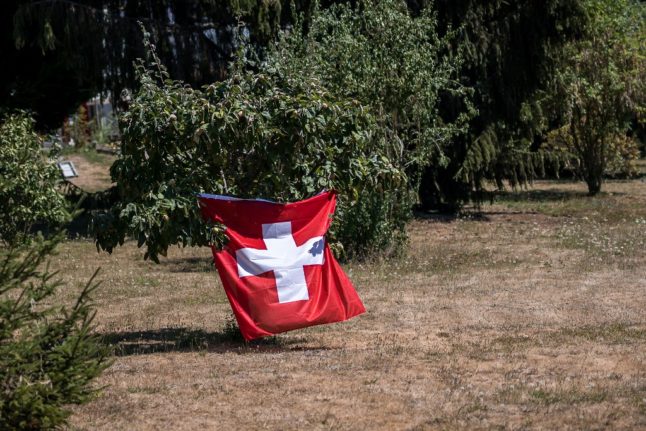Before the pandemic, visiting your partner in Switzerland involved little more than the money for a flight and perhaps a tourist visa.
Since March, 2020 however, Switzerland has tightened the rules for entry – which has meant many couples found it challenging or even impossible to see each other.
While the rules were originally so strict that only married couples could reunite in Switzerland, this was relaxed in August of 2020.
READ MORE: Unmarried partners again allowed into Switzerland
In order to do so however, unmarried couples will need to ‘prove’ their relationship to satisfy Swiss authorities.
Here’s what you need to know.
How can I visit my boyfriend or girlfriend in Switzerland?
First things first, your citizenship and where you are arriving from will be crucially important.
If you are a Swiss citizen or resident, then there will be no issues. You can come to Switzerland at any time.
If they live in a EU / Schengen state or in the small European states like Andorra, the Vatican, Monaco and San Marino, they can come for a visit as well.
More information is available at the following link.
UPDATED: Who can travel to Switzerland right now?
How can people from outside Europe visit their partners in Switzerland?
For non-Schengen countries, you’ll need to do the following.
Generally speaking, these people are not allowed to enter Switzerland at the moment, except for a handful of nations deemed low-risk, including Australia, New Zealand, Rwanda, South Korea, Singapore, and Thailand.
However, the State Secretariat for Migration (SEM) does have exceptions for families and partners of Swiss residents.
This what the SEM website says:
“Entry by the immediate family members of a Swiss citizen who are registered with a Swiss foreign representation and are entering Switzerland with that Swiss citizen for a stay here does not require authorisation. Immediate family means the Swiss citizen’s spouse or registered partner and minor children (including step-children). In certain circumstances it also includes unmarried partners”.
SEM then goes on to specify entry rules for unmarried partners:
Entry to visit a partner to whom one is not married or in a registered partnership with and with whom one does not have children is possible if:
- The person wishing to enter the country has an invitation from the partner living in Switzerland and the partner is a Swiss citizen or has a short-stay permit, temporary or permanent residence permit.
- Confirmation of the existing partnership is submitted. This can be a document confirming the relationship which has been signed by both partners.
- Proof can be given that at least one face-to-face visit or meeting took place in Switzerland or abroad.
- Entry is not permitted on the basis of a mere holiday acquaintance.
- Proof must be given that a relationship has already lasted for some time and is regularly cultivated. The persons concerned must provide credible evidence that they have been in regular contact.
How do I prove someone is my partner to visit Switzerland?
There are no hard and fast rules as to which documents will be sufficient, but the government wants to be convinced that this is a “long-term relationship which is cultivated on a regular basis”, with no definition of “cultivation”.
The SEM provides some examples, including “documents that document a long-term civil partnership (for example, letters and e-mails, social media, telephone bills, flight tickets, photos); Evidence such as a copy of your passport with entry and exit stamps that at least one mutual personal visit or meeting has taken place in Switzerland or abroad.”
One couple speaking with Swiss news outlet 20 Minutes said they used instagram photos as evidence of their relationship at the suggestion of the SEM.

Are there any exceptions?
There are other exemptions as well, which SEM defines as “cases of special necessity”.
They include people coming to Switzerland because a close relative is dying; to visit close relatives who have medical emergency; to continue essential medical treatment; or for important family events like funerals, weddings or births.
The full list of exceptions and other entry-related information for visitors from third countries can be found here.
If your family or partner are eligible based on the above exceptions, they may need a visa to enter Switzerland, depending on their country of residence. They have to apply for one at the Swiss foreign representation in their country, explaining and documenting why they are a case of special necessity.
In certain cases, the foreign representation may be able to provide documents confirming the situation.
For those who don’t need a visa, the border control officers in Switzerland or at a Schengen airport decide whether the requirements of necessity have been met, SEM said.
Keep in mind that all the above rules apply only to family visits, not general tourism. Rules for third-country tourists are here.
READ MORE: UPDATE: When will Switzerland relax restrictions on international travel?



 Please whitelist us to continue reading.
Please whitelist us to continue reading.
Member comments